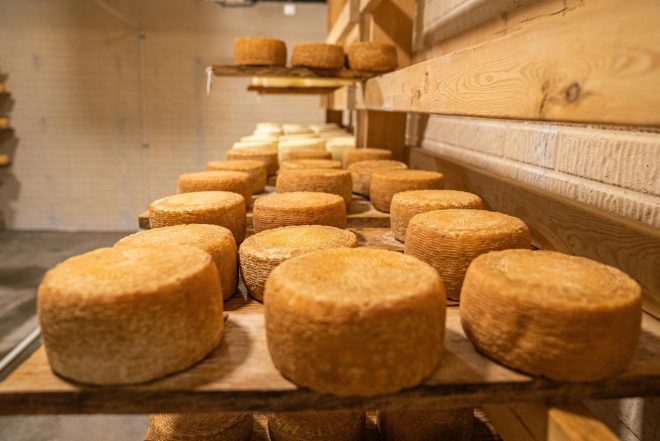Cheese production is on the rise in the US, with 5.95 million metric tons produced in 2019. With those levels of production, you need high-quality industrial cheese making equipment to ensure smooth commercial operations and a safe and reliable outcome. You need commercial-grade strainers that have been tested and proven to work in a variety of industries worldwide.
SaniClean Strainers are used in the industrial cheese filtering and straining process to ensure safety throughout the custom cheese processing. These sanitary strainers are the ideal fit to fulfill cheese processing equipment requirements for small-batch runs as well as food processing that involves 24/7 continuous production cycles.
The Industrial Cheese-Making Process
Cheese production, also known as Caseiculture, takes raw materials and bacterial culture. There are several different food processing variations. Depending on the industrial cheese making process method, the cheese could be classified as processed or rennet cheese. The general steps for processing cheese begin with the sterilization process in the production facility to ensure a safe and sanitary environment.
Next is the standardization of milk, where it is processed through centrifugation to optimize the fat and protein ratios. Then, pasteurization and inoculation of the starter culture are next in the process, although the starter culture may differ depending on which type of cheese you’re working with. Add the enzyme, rennet, to curdle the milk. Use rennin, pepsin, or other coagulants to achieve the desired result. Ferment the coagulum until it reaches the appropriate pH. Then, separate the low-moisture and high-moisture cheese fractions, and cube the coagulum.
- Cook the cheese fractions for the appropriate time and heat variables, while stirring the whey.
- Filter the mixture, separating the whey from the curd.
- Knit or trench the slabs of curd in the large vat to modify the particles and form a single mass. For some types of cheese, the curd is piled and repeatedly turned to support texturization and specific acidic characteristics.
- Process the slabs through the curd mill to achieve the smaller pieces.
- Add salt and stir the curds to stabilize the product, as part of the brining process.
- Press the coagulum into a hoop or metal form and then applying hydraulic pressure.
- In the ripening process, store the cheese in dry-and-cool storage until it reaches the desired age. The level of humidity and the controlled degree of temperature facilitates the development of the aroma, flavor, and texture.
- Finally, packaging involves the cutting and packaging consumer-sized chucks of the finished product for distribution.
With the high demand for cheese in the industry, the general cheese-making process has become ever-increasingly automated, which makes SaniClean sanitary strainers even more essential to factory operations. Safe and reliable cheese making supplies support business growth and improved operations, with custom sanitary strainer options to specifically meet your production requirements.

SaniClean’s sanitary strainers and filters are the best cheese process solutions for safe filtering while optimizing separation in the most cost-effective way. These commercial-grade strainers are flexible for the dynamically changing production environment with guaranteed uniformity and product reliability.
Key Takeaways:
- SaniClean’s strainers are a vital part of cheese processing equipment.
- We provide the quality cheese processing equipment needed for optimizing the production process.
- We have cost-efficient fine mesh solutions, with custom options to better support evolving cheese manufacturing requirements.
Industrial Strainers & Filters for Food Processing
To learn more about our industrial cheese making equipment, call us today. Our experienced team will discuss your need for cheese processing equipment. Then, we will recommend the sanitary strainers that should best meet your commercial food processing requirements. We can even offer custom sanitary strainer solutions to meet your evolving food production needs. Learn more about our available products and services.
